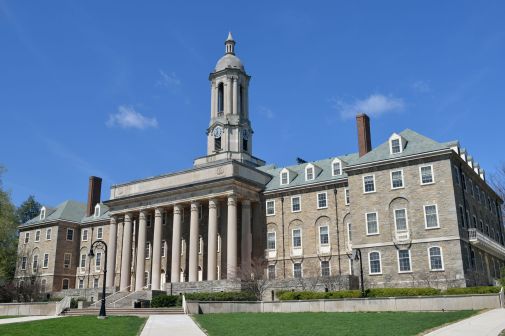Penn State joins initiative to hire more diverse STEM faculty

Pennsylvania State University joined an initiative to develop a more inclusive and diverse faculty pool in its science, technology, engineering, and mathematics departments, the university announced Friday.
The initiative, called the National Alliance for Inclusive and Diverse STEM Faculty, aims to help institutions develop inclusive faculty recruitment, hiring and retention practices. Those practices will ultimately lead to educational opportunities for minority students, and increase their ability to pursue STEM careers, the Association of Public and Land-grant Universities, which leads the initiative, said in a press release.
“We face a critical shortfall of diversity in STEM fields nationally,” said Travis York, APLU’s assistant vice president of academic and student affairs in a press release.
Underrepresented minority faculty — including women, people of color and persons with disabilities — occupied less than 10 percent of STEM field professorships at four-year institutions, according to a 2019 report from the National Science Foundation.
Penn State joins 53 other higher education institutions, including the University of Wisconsin-Madison, California Polytechnic State University, Ohio State University and the University of Maryland, College Park, to participate in the initiative. Participation in the program includes the development of more inclusive hiring practices, as well as the development of pathways to STEM professorships for minorities, according to the APLU.
Penn State’s participation will allow the university to not only drive faculty diversification in STEM fields, but also across the institution as well, to create a more inclusive organization, said Peggy Johnson, dean of the Penn State’s Schreyer Honors College, who will lead the universities diversification efforts.
“By participating in [initiative], Penn State is moving beyond statements and taking action to further develop inclusive organizational structures to increase the diversity of our faculty,” Johnson said.
The initiative will also benefit students from underrepresented groups, who have been found to be more academically successful when taught and mentored by those with similar backgrounds, according to research from Robert Palmer at the State University of New York.
Ultimately, diversifying faculty pools and focusing on representation for students pursuing STEM education will drive the STEM workforce forward and help the U.S. remain competitive in innovation in those fields, according to the APLU.
The National Alliance for Inclusive and Diverse STEM Faculty is funded by a 5-year, $10 million grant from NSF.



